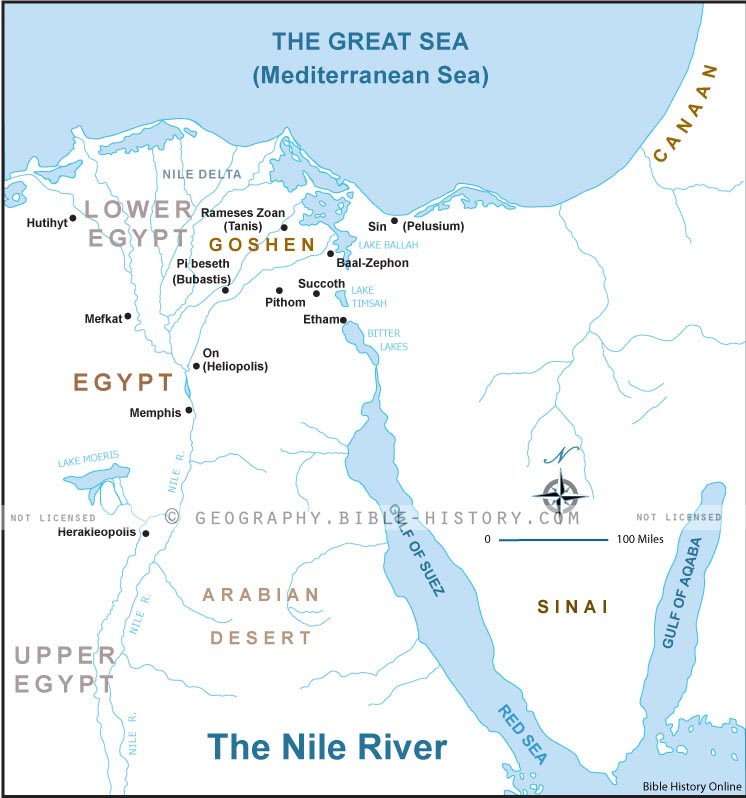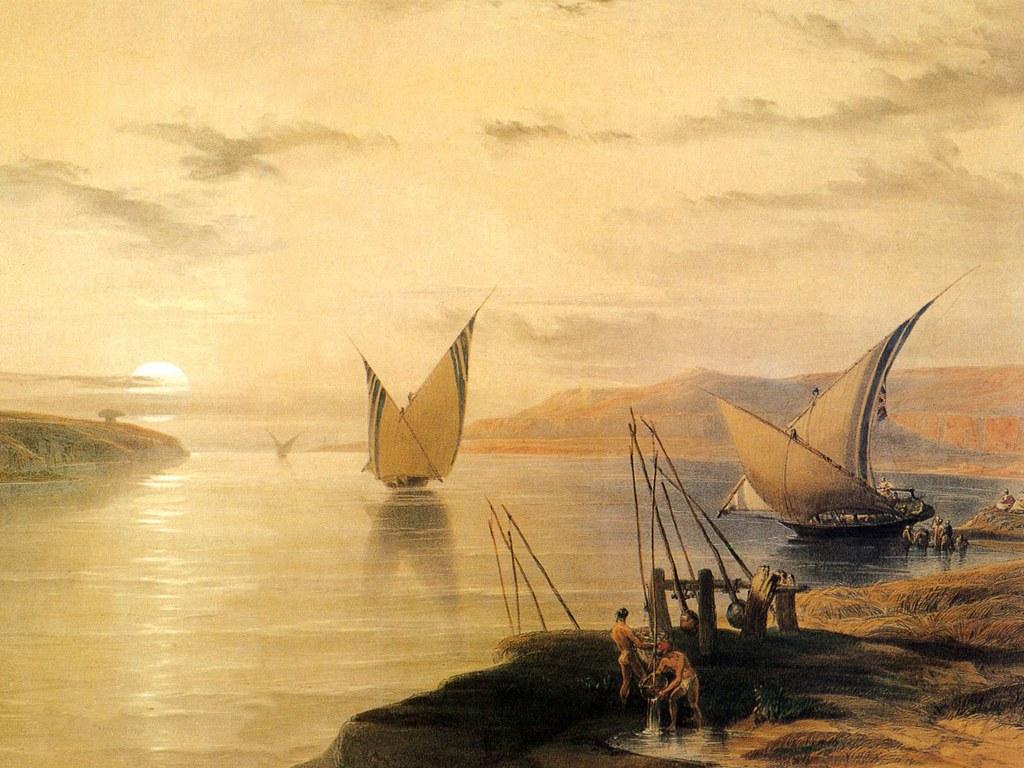31, 32. the flax and the barley was smitten, &c.--The peculiarities that are mentioned in these cereal products arise from the climate and physical constitution of Egypt. In that country flax and barley are almost ripe when wheat and rye (spelt) are green. And hence the flax must have been "bolled"--that is, risen in stalk or podded in February, thus fixing the particular month when the event took place. Barley ripens about a month earlier than wheat. Flax and barley are generally ripe in March, wheat and rye (properly, spelt) in April.
JFB.
Outline
1 The murrain of beasts
8 The plague of boils and blains
13 The message about the hail
22 The plague of hail upon the Egyptians
27 Pharaoh asks Moses to entreat the Lord
35 But yet Pharaoh is hardened
Ancient Customs
murrain
blains
magicians
ASHES USED IN CURSING
Quick Reference Map

Map of the Nile River and Egypt
(Click to Enlarge)

Painting of the Ancient Nile River by Roberts
Ancient Topics
the word of the LORD
Ancient People
God, Moses, Pharaoh, Aaron
Egyptians
children of Israel
Hebrews
Geography
Egypt
the land of Goshen
Quick Reference Maps
The Old Testament

Exodus Resources
Moses
and the Exodus
The Giving of the Law
The
Tabernacle
The Wilderness Wanderings